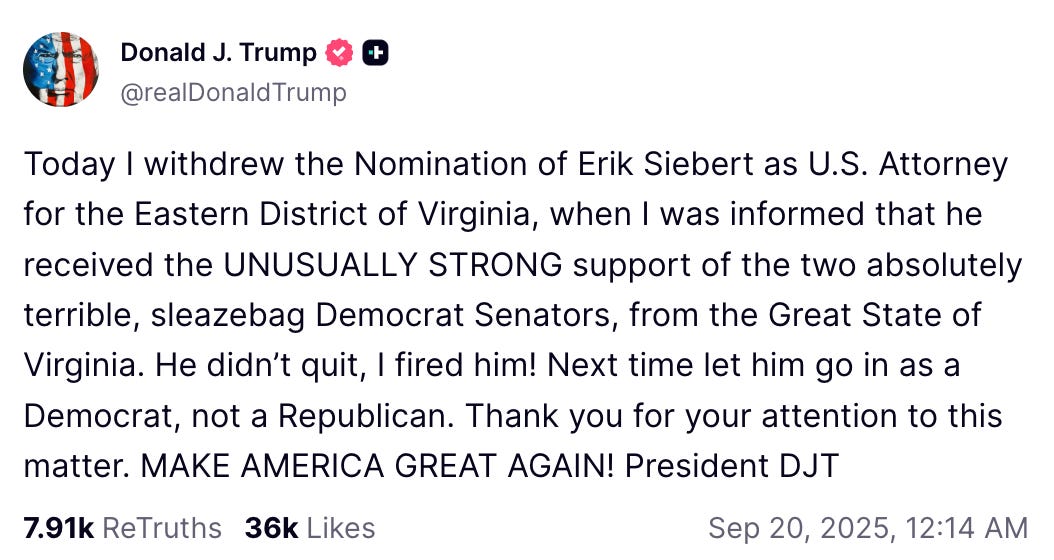September 22, 2025
Turmoil at the DOJ: Trump's Push to Indict Political Rivals Leads to High-Profile Resignation

The U.S. Department of Justice found itself entangled in controversy this weekend, as Erik Siebert, the U.S. Attorney for the Eastern District of Virginia, resigned amid pressure from former President Donald Trump to pursue charges against his political adversaries. The resignation highlights a broader narrative of Trump's attempts to leverage federal power against those he views as enemies, raising significant concerns about the politicization of the Justice Department.
Siebert's departure came after he refused to indict New York Attorney General Letitia James for mortgage fraud, a charge stemming from a clerical error in a power of attorney document. The document, which was prepared by title attorneys and not seen by the mortgage company, mistakenly described a property as James' primary residence. Despite the error, the rest of the documents correctly identified the property's status.
Trump's frustration with Siebert peaked when he labeled him a "liberal plant," orchestrated by Democratic senators from Virginia. His resignation was quickly followed by the appointment of Maggie Cleary, a figure more aligned with Trump's political interests, as interim U.S. Attorney.
The situation escalated as Trump took to social media to vent his frustrations, claiming that Attorney General Pam Bondi failed to pursue what he described as a "GREAT CASE" against James. He also criticized the DOJ for not taking action, a sentiment echoed in numerous ambiguous statements online, the origins of which remain speculative.
Adding to the controversy, Trump has positioned Lindsey Halligan, a former insurance defense lawyer with limited courtroom experience, in a key advisory role. Halligan, known for her appearances on conservative media and her recent work on Trump's domestic policy team, has been tasked with de-politicizing the Smithsonian, according to an executive order aimed at correcting alleged biases in the portrayal of American history.
This series of events comes as Trump also faces pushback in other jurisdictions, with attempts to install personal lawyers in key prosecutorial positions being met with resistance. Notably, in New Jersey, Trump's appointment of Alina Habba as U.S. Attorney led to chaos after attempts to extend her tenure beyond the Senate-confirmed period failed.
The ongoing turmoil within the DOJ and Trump's overt attempts to manipulate federal prosecutorial power underscore a troubling era of governance, where personal vendettas are increasingly steering legal actions. This stark departure from normative legal processes represents not just a personal crusade by Trump but a significant challenge to the rule of law in America. The implications of these actions, both for individual rights and the integrity of American judicial institutions, are profound and far-reaching.